The shipyard row that could sink the SNP government
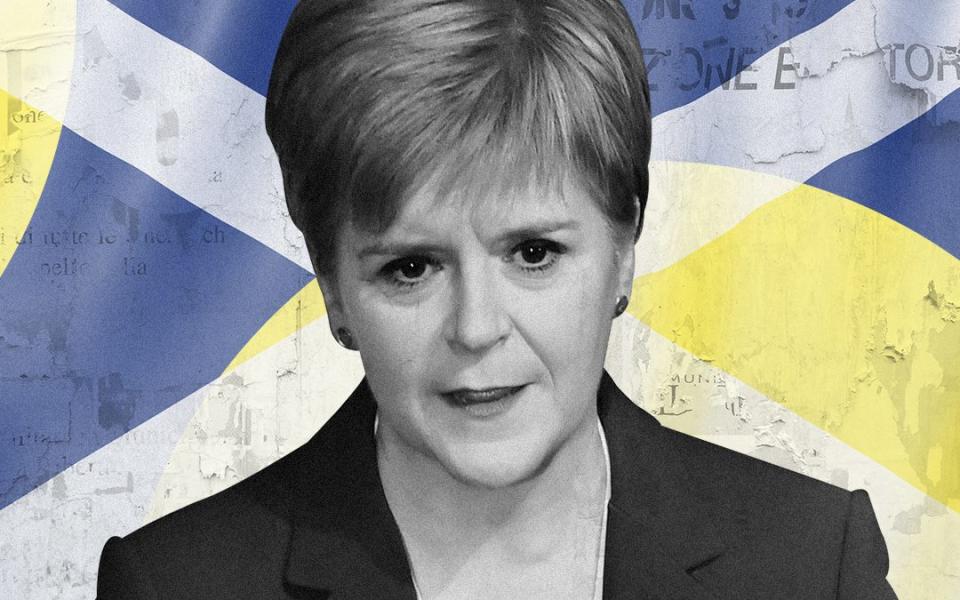
An independent public inquiry into how Nicola Sturgeon “confiscated” a Port Glasgow shipyard could bring down the SNP administration, according to one of Scotland’s richest businessmen.
Billionaire engineering tycoon Jim McColl has accused Scottish ministers of “a concerted effort to cover up” how the 118-year-old Ferguson Marine shipyard was nationalised almost two years ago.
A parliamentary inquiry, led by the Conservative MSP Sir Edward Mountain, concluded last year that the £106m procurement of two ferries by a state-owned body from Ferguson had been a “catastrophic failure”. Sir Edward and Colin Smyth, Scottish Labour economy spokesman, last night backed Mr McColl’s demands for a public inquiry.
Mr McColl says that the “full truth” can only come out if a public inquiry chaired by a judge is convinced with mandatory evidence given under oath. He said: “I think that if a proper public inquiry had been done, it would bring them [the Scottish government] down.”
Now being built under state control, Mr McColl estimates the cost to the taxpayer could soar to almost £300m.
He said: “It’s not just the amount. It’s not like they just make a mistake and put their hands up. I think there has been a concerted effort to cover up what’s really going on here.”
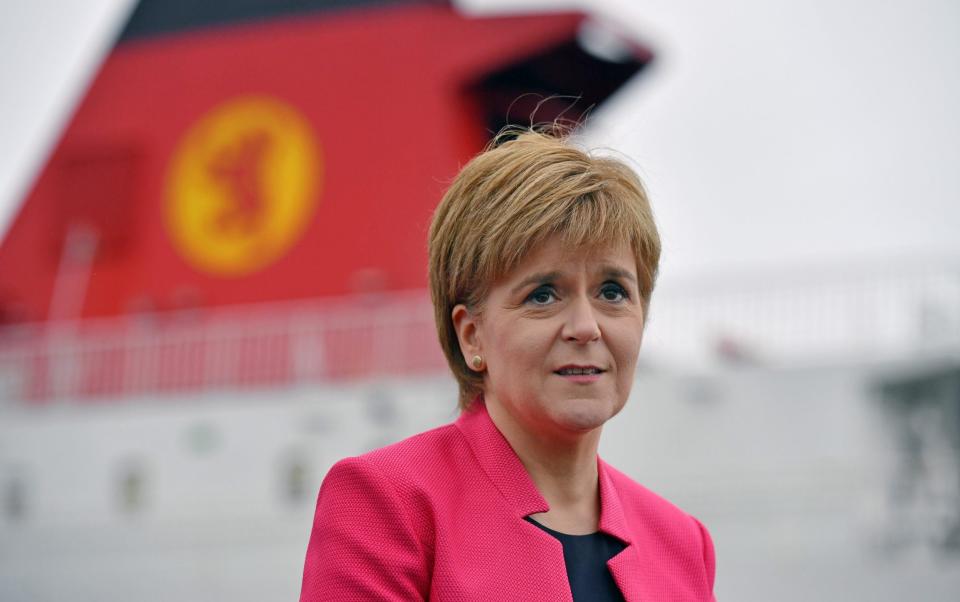
Mr McColl claims bosses Caledonian Maritime Assets Limited (CMAL), a Holyrood quango, refused to negotiate over increased costs of design changes.
His claims were attacked as “baseless” by CMAL, who said a mediator was appointed, but talks did not go ahead because Ferguson bosses “were unable to express legal reasons for payment to them beyond ‘unforeseen complexity’”.
The Scottish government said the dispute was a matter for CMAL and that a parliamentary inquiry had scrutinised the issues.
Sir Edward said: “The ferries fiasco is a national disgrace and is down to ‘catastrophic mismanagement’ as the RECC Committee identified.
“Having been the Convenor of the Inquiry I am convinced the whole story has not come out.
“I would support an independent judge-led inquiry, which is unlikely to happen, as I suspect there will be more uncomfortable truths that the Government may not wish to face.”
Mr Smyth said: “Six years on from this contract being awarded, no minister has taken any responsibility for this catastrophic failure, but the taxpayers bill continues to rise.
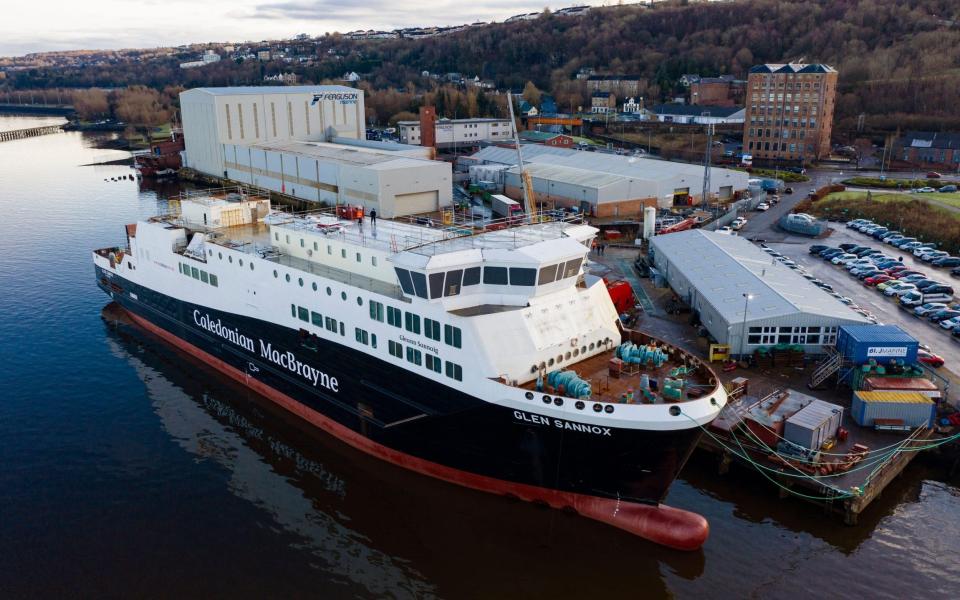
“The Rural Economy and Connectivity Committee’s report made clear there remained unanswered questions and called for Audit Scotland to carry out an inquiry.
“Our Island communities and Scottish taxpayers deserve better and if an independent inquiry is what’s required to get to the bottom of this continuing mess, then so be it.”
Meanwhile, the islands are still waiting for the delivery of the two vessels. Gavin Fulton from the Arran Ferry Action Group said: “We depend on the boats for everything. Our lives and livelihoods are controlled by the boats. Everything we need comes on that boat. So we now have boats that are very old, very unreliable and they break down.”
Interview: Scottish billionaire accuses Sturgeon of shipyard cover up
Jim McColl, one-time economic adviser to Nicola Sturgeon, tells Oliver Gill about the state power grab
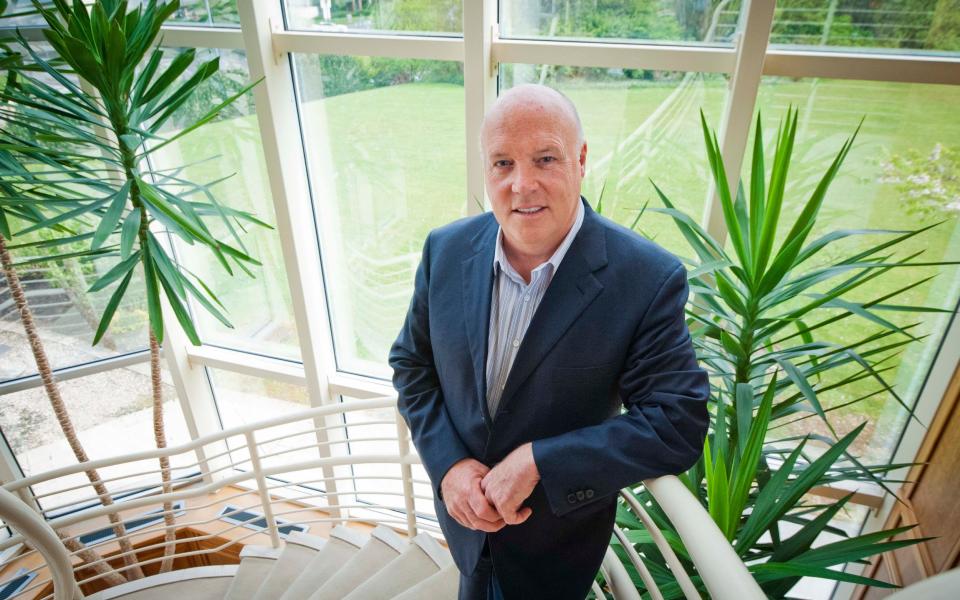
Despite his previous support for Scottish independence, Jim McColl is not afraid to praise the Auld Enemy on their footballing exploits. “I actually enjoyed it,” the Scotsman says, two days after England’s landmark victory over Germany. And it admitted he is hoping the Three Lions go all the way. “I want to see them win … to stuff it to the Europeans.”
Speaking from the Glasgow nerve centre of his engineering and investment empire, Clyde Blower Capital, the 69-year-old clutches a can of Diet Coke as the conversation moves away from football to politics and business.
McColl, who backed a “yes” vote during the 2014 independence referendum, but later accepted the result, is now locked in a bitter row with his former ally Nicola Sturgeon.
At the centre of the dispute is the Ferguson Marine, a 118-year-old shipyard once owned by McColl that the Scottish National Party (SNP) leader nationalised in 2019.
It followed a long-running row over a contract by the shipyard to deliver two ferries to be used on CalMac’s west coast routes by 2018. The contract was plagued by design changes, delays and disputes over cost.
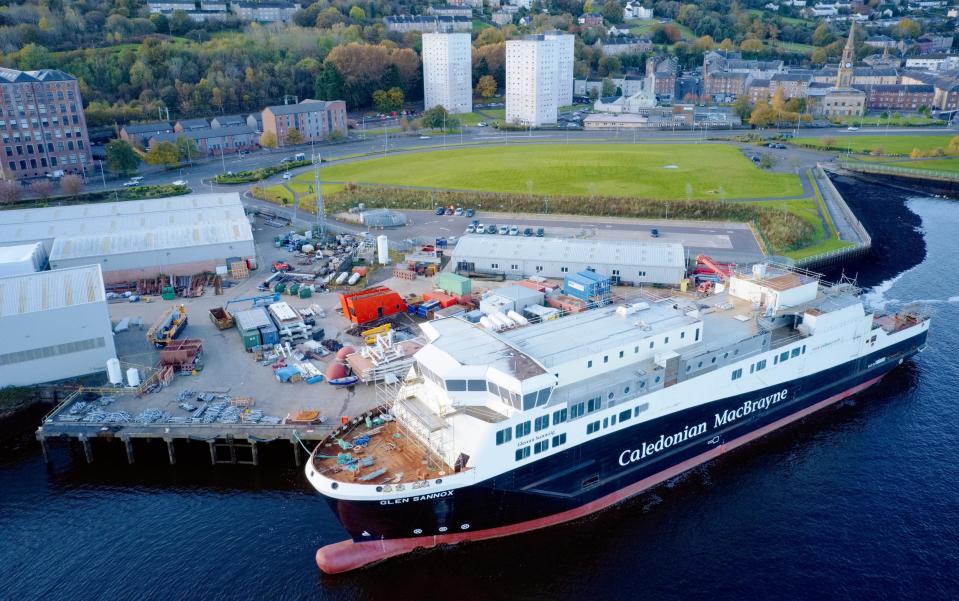
Britons south of the border have been left scratching their heads at how such a contract could have turned into one Scotland’s biggest political scandals. But for many Scots, not least Sturgeon’s critics, the crisis is symbolic of the rot embedded in economic policy in Holyrood.
For McColl, from whom Holyrood “confiscated” the business, the debacle has caused him to move from being one of Sturgeon’s closest economic advisers to a political enemy determined to oversee her downfall.
Ferguson Marine is the last remaining yard on the lower Clyde; a remnant of a bygone era when thousands were employed on the banks of the Firth, sending ships to customers around the world.
McColl, who bought the business out of administration in 2014, recalls his first impressions. “It was falling apart. It hadn’t been invested in for so many years,” he explains. “You couldn’t invite customers along to the yard the way it was and sell them your capability to build them a ship, because it was just impossible. Everything was crumbling.”
The challenge did not deter McColl, however. A butcher’s son, he stuck it out in school until he was 16 before taking up an apprenticeship with Weir Pumps in the late 1960s. After gaining his engineering qualifications he completed business and accounting degrees before being hired by Coopers & Lybrand.
His crucial move came in 1992, when he paid £1m for a 29.9pc stake in listed engineering firm Clyde Blowers. The company embarked on an acquisition spree, including the purchase of Weir Pumps in 2007. It now has more than 100 portfolio companies, and employs 5,000 people. McColl has Scotland’s tenth biggest fortune, with an estimated net worth of £1bn.
Fateful contract
The fate of Ferguson was linked to the building of two vessels that would provide a vital link between parts of the Clyde, Hebrides and the Scottish mainland. The customer was Caledonian Maritime Assets Limited, known as CMAL, a Holyrood quango.
The price for ferries, including contingencies, was £106m. Whether this was a fixed price or not remains a bone of contention, however. “This was not a standard contract,” McColl says. “It is fixed price as much as it is fixed for the specification that was submitted.
“What was very clear to us within the first year to 15 months, was the amount of variations that were coming through were way more than you would expect under a standard new build contract.”
Having made little headway with attempts to talk to CMAL, McColl made a direct appeal to Sturgeon in 2017. “They said: ‘Keep working, we’ll get some sort of mediation or resolution here,’” he says.
Deteriorating relations
McColl claims that Erik Østergaard, chairman of CMAL, opposed awarding the contract to Ferguson in the first place. Relations gradually deteriorated in the months and years that followed, a parliamentary inquiry would later reveal.
McColl says that there was only one roundtable meeting with CMAL. On no fewer than 14 occasions, he claims he asked Østergaard to agree to appointing an independent expert to assess if Ferguson was entitled to bill for cost overruns.
CMAL disagrees. A spokesman said McColl’s claims were “baseless” and that a mediator was selected. Talks only stalled because bosses at Ferguson “were unable to express legal reasons for payment to them beyond ‘unforeseen complexity’”.
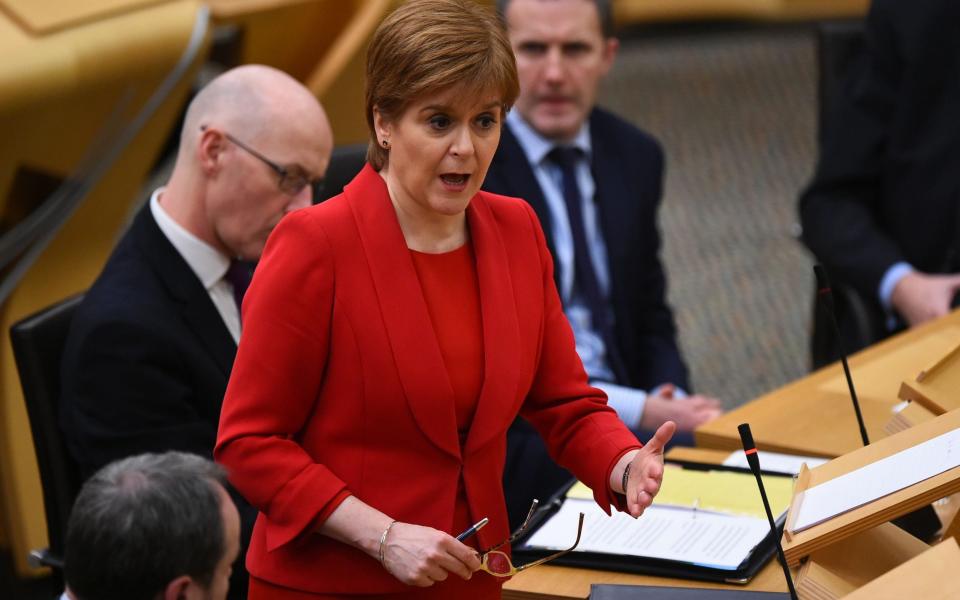
By 2019, Sturgeon had signed off two loans to Ferguson totalling £45m. McColl says that the assumption was that these were short-term bridging loans to tide the business over until a resolution with CMAL was reached.
“If there were loans for the long-term, the management wouldn’t have taken them on because it wouldn’t have made economic sense.”
It was not until about two weeks before the government took control of Ferguson in August 2019 that bosses had any inkling that a doomsday scenario was on the horizon.
“With hindsight, I think they were being very cute with the way that they were presenting things to us.”
‘I think there has been a cover up’
A Scottish parliamentary inquiry into the government’s decision to take Ferguson into public hands was concluded in December. The procurement of the two ferries was labelled a “catastrophic failure”.
CMAL was criticised for failing to oversee the project appropriately. Transport Scotland failed to intervene and the wider Scottish government’s approach was “short-term, piecemeal and lacking in strategic direction”. A spokesman for CMAL said that the report “was critical of all parties involved. We’ve taken learnings from the report.”
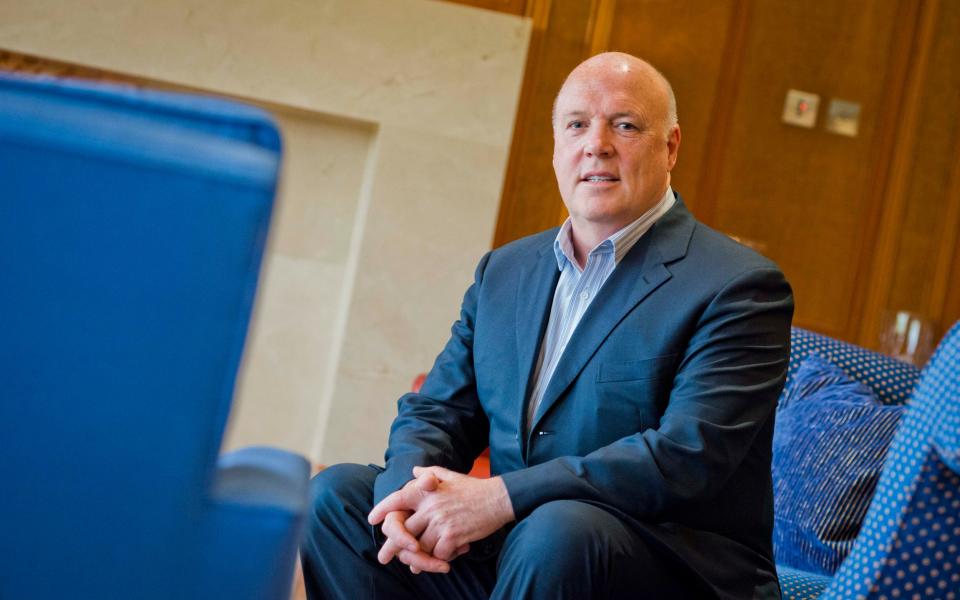
The inquiry found that the cost to taxpayers of the ferries had doubled to £200m. McColl reckons the bill could top £300m. But the examination did not go far enough, according to McColl, who is now calling for a public inquiry.
A spokesman for the government said: “The Scottish Parliament decided, independently of the Scottish Government, that the Rural Economy and Connectivity Committee (RECC) would conduct an inquiry. The RECC has completed a detailed scrutiny of these issues and Ministers have considered and responded to the committee’s findings.”
McColl says: “I think that if a proper public inquiry had been done, it would bring [the Scottish government] down.It’s not just the amount. It’s not like they just make a mistake and put their hands up. I think there has been a concerted effort to cover up what’s really going on here.”

 Yahoo Finance
Yahoo Finance 